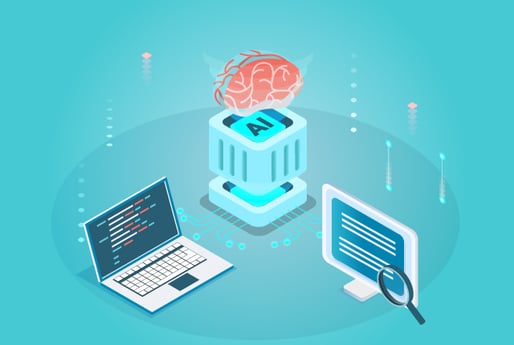
Artificial Intelligence (AI) offers a multitude of advantages when incorporated into software testing, revolutionizing the testing landscape. These benefits significantly enhance the efficiency, accuracy, and overall effectiveness of the testing process. Here are some of the key advantages of leveraging AI in software testing:
- Automation: AI empowers automation in various testing phases, substantially reducing the need for manual intervention. This spans test case generation, test data preparation, test script development, and the execution of test scenarios.
- Accelerated Testing: AI-driven test automation outpaces human testers in executing test cases, resulting in quicker testing cycles and the rapid availability of feedback.
- Continuous Testing: AI seamlessly integrates into the software development pipeline, making continuous testing a reality. This proactive approach identifies issues early in the development process, minimizing the cost and effort required to rectify defects.
- Test Case Generation: AI excels at automatically crafting test cases, drawing insights from project requirements, code analysis, and historical testing data. This leads to comprehensive test coverage.
- Enhanced Test Data Management: AI adeptly handles the generation and management of test data, enabling the simulation of diverse scenarios and edge cases.
- Regression Testing: AI is a powerful ally in performing efficient regression testing. It intelligently identifies changes in the codebase and selectively re-executes relevant test cases to verify that recent updates haven't introduced new issues.
- Defect Detection: AI plays a pivotal role in early defect detection by scrutinizing code, logs, and system behavior. It also offers predictive insights into areas vulnerable to defects.
- Smart Test Execution: AI-driven decision-making streamlines test execution by evaluating the impact analysis, code modifications, and risk factors. This optimization ensures the efficient use of the test suite.
- Self-Maintaining Test Scripts: AI's capabilities extend to the automatic upkeep and adaptation of test scripts, reducing the maintenance burden as the software evolves.
- Performance Testing: AI can simulate an impressive number of virtual users, facilitating load and performance testing. This aids in pinpointing performance bottlenecks and scalability concerns.
- Security Testing: AI is a valuable asset for automating security testing processes and identifying and addressing security vulnerabilities effectively to fortify the software against potential threats.
- Natural Language Processing (NLP): AI-driven NLP assists in interpreting requirements and user stories accurately, expediting the creation of relevant test cases.
- Predictive Analytics: AI leverages historical data and machine learning models to predict potential issues, assisting in prioritizing testing efforts.
- Cost Savings: AI-driven testing processes and the reduced reliance on manual testers translate into long-term cost savings for organizations.
- Scalability: AI seamlessly scales to accommodate complex and expansive software projects, ensuring testing efficiency.
- Consistency: AI ensures the consistency and repeatability of testing processes, mitigating the risks associated with human errors.
- Early Feedback: AI provides rapid feedback on code changes, enabling developers to address issues in the nascent stages of development.
- Comprehensive Test Reporting: AI generates detailed reports and intuitive dashboards, simplifying the communication of testing results and progress to stakeholders.
It's important to underscore that AI complements human testers rather than replacing them. The synergy between AI and human expertise is the recipe for a robust and efficient testing process.

Post a Comment